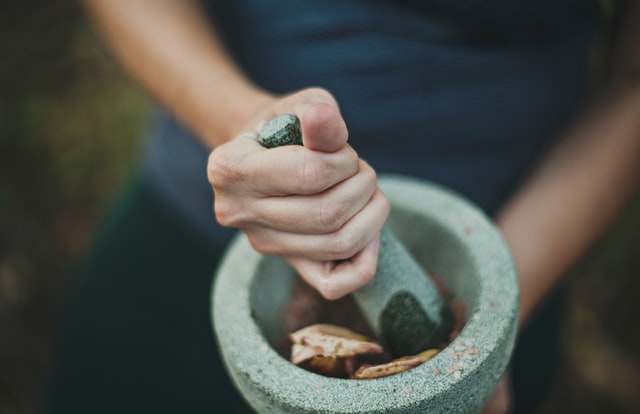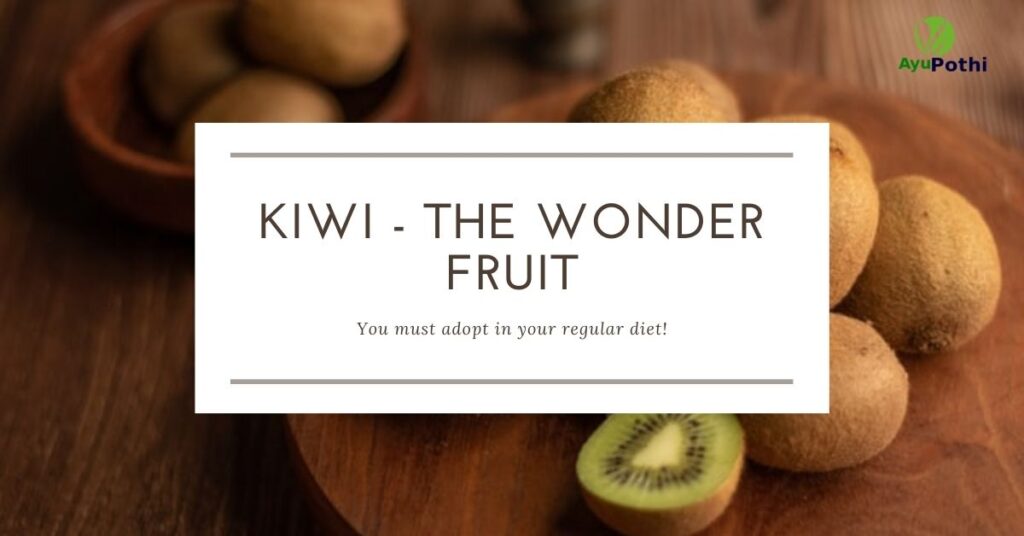It has been a hard fact now that many scholars have considered Ayurveda as the oldest healing science. The word Ayurveda in Sanskrit means “The Science of Life” . It was the Atharvaveda, a sacred text of Hinduism which is one of the first Indian texts which deals with medicine. The Ahharvaveda also contains information about prescriptions of herbs for the treatment of various ailments and the use of herbs to treat ailments would later form a large part of Ayurveda.
Ayurveda, The science of life deals with complete knowledge for long life and it is the only Ayurveda in the world that presumes an average healthy human life of 100 years. The ancient books named Charaka and Sushruta containing texts related to medication are now rarely available. Ayurvedic knowledge in India originated more than 5000 years ago and is also considered “Mother of all Healings”. According to Charaka, life may be prolonged by human efforts as health and diseases are not predetermined. Likely the Sushruta defines the purpose of medicine to cure the ailments of the sick, to protect healthy persons, and to prolong the lives.
What we talk of plastic surgery these days comes under the modern sciences but in Sushruta, the rhinoplasty was remarkable surgery and is called the father of modern plastic surgery. We should be surprised to know that Sushruta describes more than 125 surgical instruments which were used at that time.
Branches of Ayurveda
Since ancient times, the Ayurveda has eight branches namely
- Kaya Chikitsa – Medicine
- Bala Chikitsa – Pediatrics
- Graha Chikitsa – Psychiatry
- Urdhvanga Chikitsa – ENT and Ophthalmology
- Shalya Chikitsa – Surgery
- Damstra Chikitsa – Toxicology
- Jara Chikitsa – Geriatrics
- Vrisha Chikitsa – sexology and Rejuvenation
Various institutions practice in these branches however in India, Kerala state is now an epicenter of Ayurveda with world-class ayurvedic hospitals and medical colleges. Tourists from all over the world come to Kerala to experience the power of Ayurveda.
How Ayurveda works
Ayurveda works on the balancing of one’s body, mind, and consciousness with right thinking, proper diet, appropriate lifestyle, and the use of herbs. We know that every human being in the world has unique fingerprints. Likewise each person has a particular pattern of energy which is a combination of physical, mental, and emotional characteristics. This constitution is determined by many factors and remains the same throughout one’s life.

These factors may be internal or external act upon to disturb this balance resulting in a change in one’s constitution from a balanced state to an imbalance state which may include one’s emotional state of mind, improper diet or food habits, due to change of season and weather, any physical trauma, family or work relationships, etc. If these factors are recognized, then one can take appropriate steps to minimize the effects or eliminate the cause of imbalance and re-establish one’s original constitution.
Balance is the natural order Whereas imbalance is a disorder Health is the natural order Whereas disease is a disorder
So there is a constant interaction between order and disorder within the body and it needs to be understood to have a healthy mind and body. If we know what causes the disorder, we can understand how to re-establish order. If you want to develop your immunity naturally please read strong-immunity-will-triumph-pandemic-and-ways-to-build-your-immunity-strong
Three Principals of Energies
The basic biology of the body depends upon these three energies and Ayurveda identifies three basic types of energy or says functional principles that are present in everyone and everything.
These are VATA (वात ), PITTA (पित्त ) and KAPHA (कफ )
- VATTA is the energy of movement
- PITTA is the energy of digestion or metabolism, and
- KAPHA is the energy of lubrication and structure
As per the Ayurvedic philosophy, the entire cosmos is made of five elements i.e. AAKASH (Space), VAAYU, (Air) AGNI (Fire), JAL (Water) and PRITHVI (Earth), and VAATA, PITTA, and KAPHA are permutations and combinations of these five elements like VATTA are based on two elements i.e. Air and Space, the PITTA is based on two elements i.e. Fire and Water and KAPHA is based on two elements i.e. Earth and Water.
Since there is no single word in English for these energies hence the Sanskrit versions are given here. Here we will understand the basic nature of VATTA, PITTA, and KAPHA and also the basic characteristics associated with these three elements
VATTA
VATTA as we know is composed of Space and Air and it governs one’s breathing, blinking, tissue and muscle movements, pulsation of the heart, and all other movements. When VATTA is in balance, it promotes quick mind, creativity, and flexibility. VATTA people normally grasp the concepts very fast but also forget them quickly. These people are alert, restless, and very active. These people walk fast, talk fast, and also think fast. When the VATTA is imbalanced, it produces fear, anxiety, and nervousness and also dry skin and hair, aching joints, constipation, and mental confusion.
We can identify them easily as this type of people tend to earn money quickly and also spends it quickly. They are not good planners and also sometimes they may suffer economic hardship.
VATTA type of people have a variable type of appetite and digestion system and they are often attracted to foods like raw vegetables and salads. Since the attribute attached to VATTA are dry, light, cold, rough, mobile, and clear hence any of these qualities in excess can cause imbalance. The routine for VATTA people is difficult but it is necessary if VATTA is to be maintained and controlled. For these types of people, it is advisable to go to bed by 10 PM as these types of people require proper routine as well as more rest than any other type. Daily body massage with oil before bath is also recommended for these types of people.
Regarding dietary habits, VATTA people should take small meals three or four times a day and may take snacks as required and maintain a two-hour gap in their every meal. They should prefer well-cooked food and they can use and digest more oil in cooking and can have better digestion if they limit the intake of raw foods. Sweet, ripe, and juicy fruits are good for these people, and tomatoes, potatoes, eggplants, spinach, and peppers should be avoided and take care that fruits should always be eaten when empty stomach.
All types of nuts and seeds are good for these people. If 8-10 almonds are soaked overnight in water and taken in the morning after peeling them off, it should be good food for them. All dairy products and all types of oils are good for VATTA people. The use of spices is good for them but overuse of them should be avoided.
General guidelines for VATTA people.
- Eat warm food and spices
- Avoid cold, frozen, and raw foods
- Keep Calm
- Keep Warm
- Avoid extreme cold
- Keep a routine
- Take plenty of rest
PITTA
PITTA as we know is composed of Fire and Water and it governs digestion, absorption, nutrition, acculturation, metabolism, and body temperature. When the PITTA is in balance, it promotes intelligence and understanding. PITTA people have warm bodies, they have sharp intelligence, and full of new ideas. When the PITTA is out of balance, it creates anger, jealously, and hatred, and also they become short-tempered and very agitated.
They may have many moles on their body and their skin is warm and less wrinkled. Their hair is silky and also faces premature graying or hair loss. Their eyes are of medium size and their nose is sharp. They have a very strong metabolism, a strong appetite as well as good digestion. They normally like hot spices and cold drinks and also like plenty of foods and liquids in their diet. Their sleep is sound and of medium duration. Their hands and feet stay warm and have low tolerance towards the sunlight and heat. They also like light physical work.
Mentally the nature of PITTA people are alert and intelligent having good power to convince but are easily agitated and aggressive and also hate, anger, and jealousy can be seen if PITTA is imbalanced. PITTA people like to be leaders and planners in their work and also have prosperity in their life. They sometimes tend to exhibit their wealth and ownership.
Based on the fire principle, these people could have a fever, jaundice, etc and sometimes common problems like skin rashes, burning sensations, inflammations or irritations, sore throats, etc can be seen in these people.
PITTA people should avoid sour and salty foods and they should also refrain from eating meat, eggs, alcohol, and salt rather they should become vegetarian. They should include sweet, cooling, and bitter foods in their diet. Tomatoes, radishes, chilies, garlic, and raw onions should be avoided by these people or say if any vegetable is too sour or too hot, it will aggravate PITTA and should be avoided. Salads and raw vegetables are good for PITTA people
Since most of the nuts and seeds have too much oil and also are heating for PITTA so should be avoided however coconut can be eaten as it is cooling and also sunflower and pumpkin seeds can be taken occasionally. Dairy products are good for PITTA people and curd with little water can be used by them however hot spices like cardamom, cinnamon, coriander, fennel, turmeric, cumin, black pepper, etc should be avoided. Further, these people should avoid coffee, tobacco, and alcohol.
General guidelines for PITTA people
- Low salt intake
- Avoid excessive heat
- Avoid excessive oil
- To eat cool and non-spicy foods
- Avoid excessive steam
- To exercise during the cooling part of the day.
KAPHA
KAPHA as we know is composed of Earth and Water which is also about lubrications and structure so it deals with bones, muscle and provides the necessary glue that holds the cells together. It supplies water for all bodily parts and systems and it moisturizes the skin, provides lubricate to joints and is highly responsive to maintain immunity in the body. When the KAPHA is in balance, it creates calmness, forgiveness. Kapha-type people are blessed with strength, endurance, and stamina. When it is out of balance, it creates greediness, envy, etc.
Their skin is oily and these people may gain weight easily. They have a slow metabolism and they tend to stay away from exercise. Their skin usually is oily and smooth. They have thick skin and the bodies and muscles of these people are well developed. Regarding their eyes, they are generally large and attractive with thick and long eyebrows. These people are attracted to sweet, salty, and oily foods.
KAPHA people are generally tolerant, calm, and forgiving however sometimes they are seen as lethargic. They do have a long-term memory. Disease connected to the water like flu, sinus congestion, excess weight, diabetes, headaches is common in these types of people.
KAPHA people should avoid dairy products and fats of any kind and should avoid fried and greasy foods. Roasted and dry cooked grains are best for them. All types of vegetables are good for them but they should prefer to take those vegetables which are grown above the ground and should avoid root vegetables. Very sweet or sour fruits should be avoided by them. Their bodies do not require a large amount of protein and the heavy consumption of nuts and seeds aggravates KAPHA due to oil in them. KAPHA people should avoid the heavy, cooling, and sweet qualities of dairy. They can use all spices but salt intake should be reduced.
General guidelines for KAPHA people
- Avoid heavy foods
- Avoid dairy products
- Keep yourself active
- Do plenty of exercises
- Avoid iced food or drinks
- Eat light and dry food
- Avoid fatty and oily foods
- Avoid taking nap in the daytime
It is, therefore, necessary to identify the nature of your body and to adopt habits that could balance the elements and energies in your body. The information provided here may help you in identifying the nature of your body. Be aware and remain healthy!
I hope you liked it and gained some information out of it. Please give our opinions in the comment section or write us at [email protected]


